Discover The Lindsey Elmore Show
The Lindsey Elmore Show

 The Lindsey Elmore Show
The Lindsey Elmore Show
Author: Lindsey Elmore
Subscribed: 222Played: 10,508Subscribe
Share
© Copyright Lindsey Elmore
Description
A podcast for people who believe they deserve to be healthy.
Become a supporter of this podcast: https://www.spreaker.com/podcast/the-lindsey-elmore-show--5952903/support.
Become a supporter of this podcast: https://www.spreaker.com/podcast/the-lindsey-elmore-show--5952903/support.
390 Episodes
Reverse
In this episode of The Lindsey Elmore Show, we dive into an intimate corner of peptide therapy—sexual health and desire. Lindsey explores two cutting-edge peptides, PT-141 (bremelanotide) and Kisspeptin, both of which show promise in enhancing sexual pleasure, intimacy, and overall satisfaction for women and men alike.She unpacks how PT-141, originally developed as a tanning agent, is now FDA-approved for hypoactive sexual desire disorder in premenopausal women, and how Kisspeptin is showing powerful results in clinical trials by boosting arousal while quieting guilt and self-consciousness in the brain.While these peptides may open new doors for intimacy and connection, Lindsey also reminds us that chemistry is only part of the equation—emotional intimacy and relational work remain essential.Key TakeawaysWhat Peptide Therapy Is (00:01–00:05) Small chains of amino acids can enhance multiple body systems, including sexual health.PT-141 (Bremelanotide) (00:16–02:29) Originally a tanning agent, now FDA-approved for treating hypoactive sexual desire disorder in premenopausal women. Increases both desire and pleasure, though some users experience nausea or flushing.Safety & Sourcing (02:43–03:12) Avoid unregulated sprays found online; only use compounding pharmacies for safety and consistency.Kisspeptin Research (03:34–05:35) A neuropeptide was first discovered in cancer research. Clinical studies show it activates arousal-related brain regions while quieting guilt and self-consciousness. Found effective in both women and men, improving desire, arousal, and satisfaction.Emotional & Relational Context (05:59–06:59) Peptides may enhance sexual function, but emotional intimacy, cultural context, and relational dynamics are still central to true sexual well-being.Where the Field is Headed (07:02–07:09) Future episodes will explore peptide research in pain management and hormone regulation.Become a supporter of this podcast: https://www.spreaker.com/podcast/the-lindsey-elmore-show--5952903/support.
In this eye-opening episode, Dr. Lindsey Elmore exposes the chaos unfolding in the UK as Mounjaro (weight loss/diabetes medication) prices skyrocket 170% overnight—jumping from £92 to £330 per month. Discover how Eli Lilly's "European price matching" triggered panic buying, crashed pharmacy websites, and left patients spending over £1,000 to stockpile medications. Lindsey examines the real-world impact, even in the U.S.: supply shortages, hoarding behaviors, and the unfair advantage given to those who can afford to bulk-buy versus patients with genuine medical needs. A must-listen for understanding how arbitrary pharmaceutical pricing decisions affect real people's access to life-sustaining medications.Main Topic Introduction00:00-00:30: Discussion focuses on Mounjaro (weight loss/diabetes medication) pricing crisis in the UKThe Price Hike00:37-01:13: Massive 170% price increase starting September 1st, 2025Current price: £92/monthNew price: £330/month (up from planned £122/month)01:25-01:41: Eli Lilly justifies increase as "adjusting prices to match the rest of Europe"Pharmacy Response00:37 & 01:41-02:01: UK's largest online pharmacy "Pharmacy2U" freezes prices, then stops sales entirelyPanic Buying Crisis02:09-02:34: Patients stockpiling medications before price hikes02:22: Pharmacies offering 3, 6, or 9-month bundles02:44-02:59: Real examples: patients buying 7-8 pens, spending over £1,000 in panic purchases04:35: Pharmacy websites crashing from demandSupply Chain Impact02:59-03:24: Hoarding strains supply chains and prevents access for patients who truly need the medication03:24-03:44: Medical experts urge against hoarding injectable medications at homeCore Issues Identified03:51-04:12: Access and fairness concerns - distinguishing between medical necessity vs. cosmetic use05:37-05:57: Drug prices change "for no reason at all" with no patient input06:08-06:27: Need to prioritize patients who medically need medications over those who can afford to stockpileSolutions Proposed04:59-05:27: Work with legislators through existing Inflation Reduction Act framework06:27-06:55: Legislative action needed to control "absurd" arbitrary drug pricing, especially for life-sustaining medicationsEpisode Conclusion07:06-07:14: Show closing: encouraging wise health decisionsBecome a supporter of this podcast: https://www.spreaker.com/podcast/the-lindsey-elmore-show--5952903/support.
In this solo episode, Lindsey dives into the world of peptide injections, with a focus on the controversial “Wolverine shot” (BPC-157). She explores what peptides are, why they’re trending in gyms, wellness clinics, and med spas, and how they’re marketed for muscle gain, fat loss, recovery, and anti-aging.Lindsey discusses the science (and lack thereof), FDA concerns, and potential risks like overdosing, contamination, and unregulated use. She closes by reminding listeners that while peptides are intriguing, true health and longevity still come from foundational practices—quality sleep, nutrition, strength training, and meaningful human connection. Listen in to learn more : 01:03 – Why People Use PeptidesClaimed benefits include lean muscle gain, faster recovery, testosterone support, fat loss, and anti-aging. However, the evidence base is thin.01:18 – BPC-157 and Other PeptidesBPC-157: derived from stomach peptides, believed to speed up tissue healing and reduce inflammation.Tesamorelin: studied for HIV-related fat reduction.Sermorelin: targeted for sleep and recovery.CJC-1295 + Ipamorelin: growth hormone–related stacks are popular among bodybuilders.02:28 – Lack of Scientific EvidenceMost data comes from animal studies or small trials, not significant human clinical research.03:55 – FDA ConcernsThe FDA flagged four peptides in 2022; that number jumped to 26 by the end of 2023, showing rapid regulatory scrutiny.04:42 – Anecdotal Use by Doctors and CEOsSome report success with peptides like BPC-157 for injuries, but even they acknowledge the lack of robust science.05:35 – Risks of Overuse and ContaminationOverdosing risks: especially when combining peptides with testosterone, leading to organ enlargement.Contamination/mislabeling: Many peptides sold are unregulated, increasing health risks.06:15 – Back to Basics for LongevityDespite the hype, proven health strategies remain the same: sleep, exercise, protein, reducing sugar, strength training, and social connection.Become a supporter of this podcast: https://www.spreaker.com/podcast/the-lindsey-elmore-show--5952903/support.
Producer Tammy Munson flips the script and interviews Dr. Lindsey about hormones—what they are, why midlife can feel like a “storm,” and how lifestyle, testing, and targeted strategies (starting with cortisol and insulin) create real hormone harmony. They dig into common myths (it’s not all about HRT), what to test, how to think functionally (antecedents/triggers/mediators), and introduce Lindsey’s upcoming Hormone Harmony course plus a free starter ebook.Key TakeawaysHormones = the body’s messaging system. When they’re imbalanced, every “section of the orchestra” is out of tune—mood, sleep, energy, metabolism, cycles.Perimenopause isn’t the start of the storm. For many, cortisol and insulin dysregulation had been present long before; midlife amplifies the issue.Start with foundations. Sleep, nutrition, movement, stress regulation, relationships, environment, microbiome, and trauma history all play a role in maintaining hormone balance.Fix cortisol & insulin first. You won’t stabilize thyroid, estrogen, progesterone, or testosterone long-term without addressing these two.Test, don’t guess. Get a basic panel (thyroid, cortisol, insulin, sex hormones) before jumping into meds/supplements.Myths to ditch. Hormone issues aren’t only a menopause problem, and HRT isn’t the only solution—lifestyle and root-cause work matter.Balanced hormones = better life. More stable mood, energy, sleep, cognition, and metabolic ease.Resources. Lindsey’s Hormone Harmony course dives into oxytocin, cortisol, insulin, thyroid, estrogen, testosterone + practical protocols. A free ebook offers a starter roadmap (link in show notes).Listen in to learn more: 00:57 – 02:12 | What hormones do: sleep, metabolism, mood, reproduction, stress response.02:12 – 05:38 | Why midlife feels like a storm: cultural narratives, U.S. lifestyle factors, and pre-existing cortisol/insulin issues.05:38 – 07:22 | Healthcare gaps: dismissal, antidepressants, “you’re just crazy” narratives; measure first.07:22 – 09:56 | Lifestyle levers & functional lens: sleep, diet, stress, exercise, relationships, environment, microbiome, genetics; antecedents/triggers/mediators; “turn off the faucet.”09:56 – 12:42 | Myths & priorities: hormone issues across the lifespan; HRT isn’t the only tool; start with cortisol and insulin.Links Sign up for the E-book – https://www.wellnessmadesimple.us/dose-of-clarity/Connect with Tammy. Website - Wildfire Creative Company IG: @WildfireCreativeCoBecome a supporter of this podcast: https://www.spreaker.com/podcast/the-lindsey-elmore-show--5952903/support.
In this episode of The Lindsey Elmore Show, Lindsey sits down with David Roberts, co-founder of Mara Labs and a pioneer in sulforaphane supplementation.Sulforaphane, derived from broccoli sprouts, has been called the "master molecule for health" thanks to its ability to support detoxification, reduce inflammation, enhance brain health, and improve metabolic function. David shares the science behind stabilizing sulforaphane, explains why most supplements fall short, and discusses its synergistic effects with molecules like curcumin. From detoxing microplastics to balancing hormones and boosting mitochondrial energy, sulforaphane has far-reaching benefits for overall resilience.Key TakeawaysSulforaphane Basics: A compound found in broccoli sprouts with over 37 documented pro-health mechanisms.Brain Health: Increases BDNF, supporting neuroprotection, neurogenesis, and even enhanced dreaming.Detoxification: Activates NRF2 pathways, turning on over 200 antioxidant and detox genes for up to 72 hours.Inflammation: Synergizes with curcumin to reduce NF-kB and IL-6, two key pro-inflammatory markers.Practical Use: Each capsule of Mara Labs’ stabilized sulforaphane equals the benefit of 2.5 pounds of broccoli.Metabolic Impact: Helps balance estrogen, supports mitochondrial energy, and assists in reducing belly fat and insulin resistance.Environmental Defense: Aids the body in processing toxins like glyphosate and mobilizing microplastics.Chapter Timestamps01:00 – What is sulforaphane and why it’s the “master molecule”03:00 – How sulforaphane supports brain health through BDNF05:00 – Stabilizing sulforaphane and the challenges of supplementation06:45 – David’s personal story: breast cancer diagnosis and discovery of sulforaphane08:00 – How sulforaphane is delivered and stabilized in capsules10:00 – The NRF2 pathway and turning on antioxidant defense13:00 – Detox done right: why many “detox programs” fail15:00 – Curcumin and sulforaphane synergy for inflammation reduction18:00 – Internal studies on inflammation markers (IL-6, NF-kB)20:00 – The real role of detoxification vs. buzzwords24:00 – Toxins in modern life: microplastics, glyphosate, and more28:00 – Genetic modification, glyphosate, and long-term toxicity29:30 – Sulforaphane for metabolism, mitochondrial energy, and belly fat32:00 – Additional Mara Labs products supporting metabolism (GLP-1 alternatives)33:00 – How to learn more: Mara Labs discount link👉 Learn more about BrocElite and Mara Labs at maralabs.com/lindsey.Become a supporter of this podcast: https://www.spreaker.com/podcast/the-lindsey-elmore-show--5952903/support.
In this solo episode, Dr. Lindsey breaks down the fascinating world of peptides and their role in maintaining hormone balance, promoting anti-aging, boosting energy, and supporting overall health. She explains what peptides are, how they work in the body, and why they’re becoming such a powerful tool in modern wellness. You’ll hear how peptides can help with inflammation, sleep, metabolic health, and even skin vitality — plus practical guidance on when and how to use them safely.If you’ve been curious about how to optimize your health naturally without relying on quick fixes, this episode gives you the science and clarity you need.📥 Don’t miss the free ebook: Dose of ClarityKey TakeawaysWhat are peptides? A simple breakdown of these amino acid chains and why they matter.Hormone connection: How peptides help balance and optimize your body’s natural rhythms.Anti-aging & vitality: Why peptides are gaining popularity in regenerative medicine.Practical applications: Sleep, energy, inflammation, metabolism, and skin health.Safety & strategy: What to know before starting peptide therapy.Listen in to learn more: 00:00 – 02:45 | Introduction: Why peptides are such a big deal right now02:46 – 08:30 | What peptides are and how they function in the body08:31 – 15:20 | Hormonal health and how peptides influence balance15:21 – 20:00 | Anti-aging, skin, and energy benefits of peptides20:01 – 27:40 | Practical use cases: sleep, inflammation, and metabolism27:41 – 32:00 | Safety considerations and choosing the proper protocol32:01 – 34:00 | Closing thoughts + free resource: Dose of Clarity ebookBecome a supporter of this podcast: https://www.spreaker.com/podcast/the-lindsey-elmore-show--5952903/support.
Pete Sulack—chiropractor, holistic medicine expert, and founder of Redeem Health—shares his incredible journey from being diagnosed with terminal brain cancer in late 2024 to achieving complete remission in just four months.Through a powerful combination of faith, nutrition, detoxification, and oxygenation therapies, Dr. Pete developed his “Be Resilient” protocol—a free resource that helps others fight chronic illness and cancer.In this episode with Lindsey, he unpacks the real meaning of metabolism, explains why mitochondria are key to disease prevention, and shares practical tools that anyone can use to improve their health radically.Listen in to learn more: 00:00 – Introduction: Dr. Pete’s background and career in holistic and functional medicine.00:22 – The diagnosis that changed everything: terminal brain cancer in late 2024.00:39 – Four months later—declared cancer-free: the protocols he used.01:07 – Why nutrient and mineral deficiencies undermine detoxification.01:20 – Inside Redeem Essentials: parasite cleanse, mitochondrial support, adaptogenic herbs.01:51 – Rethinking metabolism—why it’s about cellular energy, not weight.02:43 – The “dirty fuel” vs. “clean fuel” analogy for diet and antioxidants.03:52 – Cancer as a mitochondrial disease and the role of food in healing.05:01 – Sharing his journey publicly and launching the free Resilience Protocol.05:53 – Five pillars of his cancer approach: personalized diet, supplementation, detoxification, oxygenation, and faith.06:20 – Detoxification tools: coffee enemas, castor oil packs, and hydration.06:42 – Oxygenation methods: hyperbaric oxygen therapy, ozone, saunas, vitamin C, PEMF.07:54 – Why mindset, determination, and food choices matter most in healing.09:02 – Calling out the biggest lie in healthcare: “food doesn’t matter.”09:25 – Encouragement to fight for your life and seek advocates in your healing journey.10:00 – Dr. Pete’s mission work: 25+ global trips with Matthew 10 International.10:59 – integrate the physical, emotional, and spiritual habits that keep you well.Links Mentioned in This EpisodeWebsite: drpetelac.comResilience Protocol (Free Download): Comment “protocol” on Dr. Pete’s Instagram or FacebookRedeem Essentials: redeemessentials.comNonprofit: Matthew 10 InternationalBecome a supporter of this podcast: https://www.spreaker.com/podcast/the-lindsey-elmore-show--5952903/support.
Mineral deficiencies are silently driving chronic fatigue, brain fog, thyroid dysfunction, and even personality shifts. In this eye-opening episode, chemical engineer and nutrition expertBarton Scott reveals how nanominerals and hair tissue mineral analysis (HTMA) are revolutionizing the way we understand our health. Learn why blood tests fail to detect deep deficiencies, how to reverse decades of depletion, and why testing your hair might be the best investment in your wellness journey. Barton shares his deeply personal motivation behind founding Upgraded Formulas and how these innovations are transforming lives—one mineral at a time.Listen in to learn more : 02:30 – What are essential minerals, and why are we all deficient06:00 – Impact of mineral deficiency on hormones and energy09:00 – Why hair tissue mineral analysis is more accurate13:00 – How to reverse mineral deficiencies effectively17:30 – The danger of heavy metals and how HTMA reveals toxicity22:00 – Barton’s story: From athlete to founder26:00 – The tragic loss that sparked his mission30:00 – Upgraded magnesium + clinical sleep trial results33:00 – Why melatonin supplements may do more harm than good36:00 – School start times, blue light, and sleep cycles38:00 – Upcoming product innovations and Barton's new bookLINKS https://www.upgradedformulas.com/ Become a supporter of this podcast: https://www.spreaker.com/podcast/the-lindsey-elmore-show--5952903/support.
Listen & Watch:🎧 Listen on Apple Podcasts ▶️ Watch on YouTube Dr. Erin Nance—orthopedic surgeon, author of Little Miss Diagnosed, and viral TikTok creator—joins Lindsey to pull back the curtain on the medical system’s blind spots. From patient dismissal and gender bias to the complexities of insurance and burnout, Dr. Nance shares her raw, firsthand experience navigating the healthcare world as a young female surgeon.We discuss why medical misinformation is rampant, how social media has become her second stethoscope, and what needs to change so that medicine can better serve patients and providers alike. This is a powerful conversation about courage, clarity, and reclaiming the human side of healthcare.Key Takeaways from Dr. Erin Nance’s InterviewListening is powerful medicine.Being a female surgeon still comes with resistance.Mental health is essential for healthcare providers.Social media has helped her reconnect with purpose.Success isn’t always what it seems.You can be both a surgeon and a storyteller.Redefining ambition can be revolutionary.Resources & Next Steps:Grab the Book: Little Miss DiagnosedFollow Dr. Nance on TikTok: @littlemissdiagnosedVisit Her Website: https://nancemd.comBecome a supporter of this podcast: https://www.spreaker.com/podcast/the-lindsey-elmore-show--5952903/support.
Is ambition driving you—or draining you? In this powerful episode, Lindsey welcomes Kathy Oneto, author of Sustainable Ambition, to unpack how we can pursue our goals without sacrificing our well-being. They explore how ambition operates on a curve, how to balance drive with rest, and why our motivation doesn’t always have to come from within.With practical tools and a refreshing take on success, this conversation invites you to slow down, reflect, and align your ambitions with what actually matters. Listen in to learn more: Ambition operates like pressure: too much or too little can backfire‣ 00:00:01 – 00:00:31Kathy introduces the "ambition curve" and how finding your sweet spot leads to optimal performance. Our culture pushes a ‘more is more’ mindset—but at a cost‣ 00:01:00 – 00:02:30Kathy breaks down how external influences and idealized standards can lead to overload and dissatisfaction. Motivation doesn’t have to be pure to be effective‣ 00:04:30 – 00:06:00Lindsay and Kathy agree: extrinsic motivators can be valid stepping stones toward deeper purpose. The 4 sustainable motivators: vision, purpose, values, and joy‣ 00:07:00 – 00:08:30Kathy walks us through the core motivators behind her framework for sustainable ambition. Ambition changes throughout your life—and that’s okay‣ 00:09:00 – 00:10:30From resume goals to legacy building, Kathy shares how our definition of success evolves over time. Ambition isn’t an identity—it’s a state that can ebb and flow‣ 00:13:00 – 00:15:00Learn how detaching from ambition as a fixed trait creates space for rest and recovery. The Sustainable Ambition Framework: Right ambition, right time, right effort‣ 00:16:00 – 00:18:00Kathy outlines her 3-pillar model and how it can help prevent burnout while still pursuing what matters.Resources & Mentions:Kathy Oneto’s Book: Sustainable AmbitionPodcast: Sustainable Ambition with Kathy OnetoWebsite: www.sustainableambition.comBecome a supporter of this podcast: https://www.spreaker.com/podcast/the-lindsey-elmore-show--5952903/support.
Listen & Watch Links🎧 Listen on Apple Podcasts ▶️ Watch on YouTube 🌐 Visit Dr. Kyra's website: https://drkyrabobinet.comWhy do we keep doing the things we know aren’t working? In this episode, Dr. Kyra Bobinet, author of Unstoppable Brain, breaks down the real reason behavior change feels so impossible—and how neuroscience can set us free.Lindsey and Dr. Kyra delve into the brain’s habenula (also known as the failure detector), examine why hustle culture can lead to burnout, and uncover the shame loops that undermine our best intentions. Dr. Kyra shares a compassionate, science-backed path to sustainable change rooted in rest, self-trust, and the courage to try again. If you've ever thought, “I know what to do, I just don’t do it,” this episode is your permission slip to stop performing and start healing.Key TakeawaysThe habenula shuts down motivation after repeated perceived failures.Traditional self-help often triggers shame instead of promoting change.Hustle culture teaches performance, not transformation.True behavior change requires rest, self-compassion, and aligned action.You are not broken—your brain is trying to protect you.Chapter Timestamps00:00 – Intro and trigger warning: performance pressure & behavior change03:45 – Why motivation isn't enough07:12 – The hidden brain region that controls behavior (the habenula)12:30 – Burnout cycles and shame triggers18:15 – The trap of perfectionism in wellness culture24:02 – Three "medicines" for the brain's failure loop29:45 – How to recognize sustainable transformationResources & Next StepsLearn more about Dr. Kyra and her work: https://drkyrabobinet.com Grab a copy of Unstoppable BrainSubscribe to the show for more insights on healing, growth, and purpose-driven livingBecome a supporter of this podcast: https://www.spreaker.com/podcast/the-lindsey-elmore-show--5952903/support.
Listen & Watch: Apple Podcasts | YouTube | SpotifyDr. Michelle Jorgensen returns to The Lindsey Elmore Show to share a powerful truth: your cells—not prescriptions—do the real healing. In this episode, she breaks down the four things every cell needs to thrive, introduces a practical self-assessment for discovering which of your organs need support, and explains why ancient healing systems were often more in tune with the body than modern trends. From grounding to seasonal nutrition to ditching dangerous dental procedures like root canals, Dr. Jorgensen offers a holistic, science-backed roadmap to lasting energy and vibrant health. Additionally, she explains how the mouth can reflect—and even contribute to—chronic illness, and what parents can do to protect their children’s oral and overall health.Key TakeawaysMedicine is a tool, not a cure; true healing occurs at the cellular level.Every cell needs four essentials: supplies, support, security, and signals.Symptoms are messages, not problems to mask, but signals to decodeYour body operates in seasons, and understanding your current season can inform your food, movement, and healing practicesTraditional healing systems often employed a root-cause approach.Grounding and nature are powerful sources of healing electrons.Protein isn’t your go-to energy source—carbs play a critical role in fueling cells.Hidden dental infections, root canals, and metals can sabotage health.A biological dental approach addresses immunity, oxygen, and the body's electrical system.sParents should prioritize minerals (in and out) over fluoride for kids’ dental healt.hListen in to learn more 00:00 – Medicine is a Band-Aid: How real healing actually works01:18 – Cellular healing explained through the finger cut analogy02:28 – Why supplements, diets, and protocols aren’t the root solutio03:20 – What ancient medicine systems got right about healing04:09 – The four things every cell needs to heal: supplies, support, security, signals05:16 – How Dr. Jorgensen’s symptom assessment identifies which cells need help06:40 – Understanding your body’s season and how it affects healing08:04 – Why symptoms matter more than diet trends10:23 – Carbs vs. protein: What your mitochondria actually use for fuel12:09 – Personalized healing through symptom interpretation and seasonal eating13:33 – How “season snapshots” in the book simplify treatment decisions14:46 – Using food and lifestyle to respond to symptoms like heart palpitations15:57 – The healing power of nature, grounding, and reconnecting with the earth17:40 – What to expect from Living Well with Dr. Michelle18:53 – How chronic illness often starts in the mouth19:58 – The hidden dangers of root canals and how they affect the immune system21:13 – Anatomy of a root canal and why it often leads to long-term infection23:16 – Why removing a dead tooth may be the healthier choice24:19 – Biological dental alternatives to root canals25:40 – What parents should know about fluoride, minerals, and kids’ oral health26:48 – Final thoughts and how to take the first step in your healing journey.Resources & Next StepsGet the book: Living Well with Dr. Michelle.Take the free assessment: LivingWellBook.comBecome a supporter of this podcast: https://www.spreaker.com/podcast/the-lindsey-elmore-show--5952903/support.
Listen & Watch: Apple Podcasts | YouTube | SpotifyIn this deeply moving episode, Lindsay sits down with Laura Evens—friend, mentor, and founder of the Willowfield Foundation—to discuss the traumatic events that changed her family forever. Laura shares the heartbreaking story of her daughter’s sexual abuse and suicide attempt, the hidden dangers of grooming, and the shocking reality that abuse often hides in plain sight. This conversation covers the painful truth about child sexual abuse, trafficking, and the signs parents usually miss. Laura also explains her work with NAMI and the importance of access to mental health support. This episode is a call to action for all of us: to be aware, ask better questions, and protect the most vulnerable in our lives.Key TakeawaysChild abuse thrives in silence, secrecy, and “nice” neighborhoods.Grooming is subtle, manipulative, and often misunderstood.Trafficking and abuse aren’t always strangers or abductions: 90% of abusers are known and trusted.Ask better questions as a parent—don’t just ask if they were polite, ask if anything felt uncomfortable.Secrets are never safe; surprises are fun, but secrets need to be shared.Parents should show up unannounced and trust their gut feelings.The Willowfield Foundation provides mental health therapy scholarships for children.Forgiveness and healing are daily choices, not one-time events.Listen in to learn more 01:58 – Laura's background and transition from corporate to mission-driven work05:16 – The traumatic experience that changed everything07:25 – Warning signs, grooming, and the importance of adult responsibility11:56 – Empowering kids to speak up without fear15:08 – Laura’s work with NAMI and crisis response16:58 – Founding the Willowfield Foundation and its mission19:41 – Letting go of guilt as a parent20:44 – Shocking statistics about abuse and why awareness matters22:39 – Where to find more informationResources & Next StepsWillowfield FoundationNAMI – National Alliance on Mental IllnessStewards of Children Training – Darkness to LightTrust Your Gut FeelingsBecome a supporter of this podcast: https://www.spreaker.com/podcast/the-lindsey-elmore-show--5952903/support.
Listen & Watch: Apple Podcasts | YouTube | SpotifyFormer marriage and family therapist turned mental wellness coach, Andrea Clark, joins The Lindsey Elmore Show to talk about the hidden cost of overfunctioning and how survival mode quietly wreaks havoc on women’s mental, emotional, and physical health. Andrea shares her journey through trauma, misdiagnosis, and burnout—and how she now helps high-achieving women break generational patterns, regulate their nervous systems, and stop outsourcing their worth. From redefining self-care to spotting the signs of hidden dysregulation, this episode is a must-listen for women who feel like they’re doing everything “right” and still feel depleted. If you're constantly hustling but never feel healed, this is your call to slow down, tune in, and finally feel safe in your own body.Key Takeaways:Survival mode often hides behind success and overachievement.Chronic dysregulation mimics ADHD, insomnia, and burnout.True self-care means nervous system regulation, not spa daysHealing begins with removing obligations and reclaiming “no.”Many women are coping, not healing, and don’t know the differenceGrounding, sunlight, and nervous system flexibility are essential steps.Trauma isn’t just the big stuff—it’s the constant need to performYou don’t have to earn rest or softness.Listen in to learn more:00:00 – From coping to healing01:00 – Meet Andrea: therapist turned truth-teller03:00 – How trauma shaped her healing path05:00 – What survival mode actually looks like06:00 – Why women don’t recognize their own dysregulation09:00 – Signs you’re stuck in fight-or-flight12:00 – Real self-care vs. performative wellness14:00 – How to begin nervous system healing16:00 – Reclaiming softness and saying “no”18:00 – The role of intuition and embodiment20:00 – Why “doing more” isn’t the answerResources & Next Steps:Follow Andrea Clark on Instagram: @andreaclarkcoachingListen to Andrea’s podcast: The Truth About Mental Health.Learn more about the Embodied Healing Roadmap at andreaclarkcoaching.comBecome a supporter of this podcast: https://www.spreaker.com/podcast/the-lindsey-elmore-show--5952903/support.
Listen & Watch: Apple Podcasts | YouTube | SpotifyMandy White Eskelin joins The Lindsey Elmore Show to break down why restrictive diets can wreak havoc on your hormones, metabolism, and mental health. A former fitness pro who once stood dehydrated on stage with a trophy in hand and a collapsing body, Mandy now helps women heal their relationship with food by starting at the root—the gut.She unpacks how chronic inflammation, food sensitivities, and cortisol imbalances stall weight loss and fuel emotional burnout. Mandy shares simple, sustainable strategies for balancing your plate, resetting your gut, and ditching diet culture once and for all. If you’ve been burned by the “clean eating” trap, this is your permission slip to reset and rebuild—inside and out.Key Takeaways:Restrictive diets lead to hormonal imbalance, gut damage, and metabolic burnout.Gut health controls serotonin, dopamine, and your body’s stress response.Eating the same “healthy” foods daily can create new food sensitivities.High cortisol levels contribute to fat storage, especially around the midsection.Balancing blood sugar with whole foods reduces cravings and restores energy.Fats don’t make you fat—sugar and stress doFruit should always be paired with protein and fat to prevent insulin spikes.Processed food wrecks your gut microbiome, which affects everything.Listen in to learn more:00:01 – Mandy's emotional breaking point and diet rock bottom01:24 – Welcome to the show & Mandy’s background02:42 – From trainer to chronic dieter: Mandy's weight loss journey04:12 – The competition that wrecked her health06:25 – Hormone issues, food sensitivities & ER visits07:37 – How gut damage begins & why healing it changed everything09:21 – The gut: your second brain and hormone HQ11:59 – Diet diversity, protein cycling & why food variety matters14:43 – What happens when you can’t digest “real food”17:58 – 21-day metabolic reset & removing inflammatory foods20:16 – Using food sensitivity testing for personalized healing24:05 – Why women need fat (and should fear sugar instead)25:44 – The truth about fruit: it’s not a snack27:42 – Good fats vs. bad fats (and what’s ruining your cells)31:00 – Reprogramming your palate away from sugar addiction34:55 – Reintroducing foods post-reset: listening to your body36:56 – Why Mandy chose holistic nutrition over conventional training39:25 – It’s not just food: primary vs. secondary nutrition40:39 – The gut-brain connection and how food impacts mental healthResources & Next Steps:Try the EverlyWell Food Sensitivity TestExplore Mandy’s 21-Day Metabolic Reset on Mandy’s website.Follow Mandy White Eskelin on Instagram: @mandywhiteeskelin.Read: The Microbiome Diet by Raphael KellmanBecome a supporter of this podcast: https://www.spreaker.com/podcast/the-lindsey-elmore-show--5952903/support.
In this thought-provoking episode, Lindsey Elmore welcomes performance coach Bill Banta to unpack why most self-help strategies don’t work—and what to do instead. Bill explores the difference between self-development and developing self, revealing how awareness, energy, and aligned identity are the true drivers of success. You’ll hear how repetition rewires your reality, why inner peace leads to outer speed, and how to finally stop consuming information you never implement. If you’ve ever felt stuck in a loop of doing more but becoming less, this episode offers a grounded, soul-deep reset. This isn’t another hustle-your-way-to-happy conversation—it’s an invitation to become someone worth following, starting with yourself.Key Takeaways:Self-development is about accumulation; developing self is about transformationCalmness and internal harmony are the foundation for lasting momentumYou will never outperform your identity—change must start withinMost people are over-informed and under-implementedRepetition builds familiarity, which builds confidence and ultimately changeChapter Timestamps:00:00 – Lindsey opens with reflection on real change05:37 – Bill explains self-development vs. developing self10:59 – Awareness as the ignition for transformation14:39 – Calm creates speed: radio frequency and alignment22:28 – Protecting your energetic field and setting intentions31:51 – Why repetition builds truth in the subconscious44:00 – Spiritual confidence, discernment, and trusting your inner voiceResources & Next Steps:Learn more about Bill: @billbanta.coachingLindsey’s favorite reads: As a Man Thinketh, The Game of Life and How to Play It, Think and Grow RichPractice: Start each morning by asking “What’s the energy I’m bringing into today?”Related Episodes:Ep 225 | The Hormonal Blindspot: Why Ignoring Your Hormones Can Harm Your Health | Beth WestieEp 244 | Detoxify Your Life: Strategies for Reducing Toxic Exposure | Dr. Rana MafeeBecome a supporter of this podcast: https://www.spreaker.com/podcast/the-lindsey-elmore-show--5952903/support.
In this powerful episode, Lindsey Elmore sits down with intuitive leadership coach and author Mory Fontanez to unpack why so many of us are burned out, reactive, and disconnected from ourselves. The culprit? We've outsourced our intuition. Mory explains how fear hijacks decision-making and shares her signature TRUST framework to help us shift from survival mode to self-trust. Whether you're a leader navigating crises, a parent struggling to tune in, or someone simply trying to quiet the noise of the world, this episode gives you the tools to stop second-guessing and start listening to your inner wisdom.Key Takeaways:Outsourcing intuition leads to burnout, poor leadership, and decision regret.Self-trust is a skill that can be developed through intentional awareness and practice.Inner child work involves noticing contracted beliefs and replacing them with compassionate truth.Leaders must stop hoarding information and empower team-level decision-making.Stress isn’t required for productivity—purpose isListen in to learn more: 05:49 – Why we outsource our intuition11:35 – How to begin simple, practical inner child work20:02 – Leaders must empower, not control27:12 – Burnout and the parasympathetic nervous system32:48 – You don’t need stress to be productive37:07 – Maury’s TRUST method explained42:04 – The media, fear, and distraction from inner wisdom46:09 – Focus on local connection and empathyResources & Next Steps:Book: Higher Self: Reclaiming the Power of Your Intuition by Maury FontanezConnect with Maury: www.moryfontanez.com Follow Maury on Instagram: @moryfontanez Related Episodes:From Surviving to Thriving: Nurturing Your Vagus Nerve | Dr. Navaz Habibhttps://podcasts.apple.com/us/podcast/from-surviving-to-thriving-nurturing-your-vagus-nerve/id1496692066?i=1000651141255 Best of Recap Episodes: Cultivating Self-Compassion and Resilience: Shifting Your Stress from Fight or Flight | Dr. Aditi Nerurkarhttps://podcasts.apple.com/us/podcast/best-of-recap-episodes-cultivating-self-compassion/id1496692066?i=1000697559203 Listen & Watch:Apple Podcasts | YouTube | SpotifyBecome a supporter of this podcast: https://www.spreaker.com/podcast/the-lindsey-elmore-show--5952903/support.
A founding member and Fellow of the American College of Lifestyle Medicine, Michael Greger, M.D., is a physician and internationally recognized speaker on nutrition. His science-based nonprofit, NutritionFacts.org, offers a free online portal hosting more than 2,000 videos and articles on a myriad of health topics. Dr. Greger is a sought-after lecturer and has presented at the Conference on World Affairs and the World Bank, testified before Congress, and was invited as an expert witness in Oprah Winfrey’s defense in the infamous “meat defamation” trial. A graduate of Cornell University School of Agriculture and Tufts University School of Medicine. Dr. Greger is also an acclaimed author. How Not to Die, The How Not to Die Cookbook, and How Not to Diet became instant New York Times Best Sellers. More than a million copies of How Not to Die have been sold. All proceeds Dr. Greger receives from the sales of his books and speaking honoraria are donated directly to charity. Topics covered in this episode:Plant-based BenefitsBoosting Liver EnzymesNutrient Deficiencies in DietProtein Overfeeding Plants as Amino Acid SourceAnti-agingCommunity and Purpose ImpactMisconceptions About Health FoodsTo learn more about Dr. Michael Greger and his work, head over to https://nutritionfacts.org/We hope you enjoyed this episode. Come check us out at https://www.spreaker.com/show/the-lindsey-elmore-showBecome a supporter of this podcast: https://www.spreaker.com/podcast/the-lindsey-elmore-show--5952903/support.
Melissa Anger is an Associate Trichologist and a licensed Cosmetologist and Barber of more than 24 years. She is married with three kids and experienced hair loss herself after being diagnosed with Hashimotos shortly after the birth of her youngest child. She has become very passionate about the subject of hair loss as a whole and strives to give people hope by helping them determine the root cause of their own hair loss and become successful long term improving their hair loss and hair growth. Topics covered in this episode:Hair Loss Causes Minoxidil Hormonal Imbalances DHT Medication Impacts on Hair LossStress and Hair LossInsulin Resistance and Hair LossCortisol and Its EffectsDiet and Lifestyle Changes for Hair LossWomen's Health and Hair-Related IssuesReferenced in the episode:The Lindsey Elmore Show Ep 130 | How Insulin Resistance Effects The Whole Body | Casey MeansTo learn more about Mellisa Anger and her work, head over to https://www.mabrowsandhair.com/IG @ma_browsandhairBecome a supporter of this podcast: https://www.spreaker.com/podcast/the-lindsey-elmore-show--5952903/support.
Dr. Heather Sandison is revolutionizing dementia care through lifestyle medicine, personalized treatment, and immersive healing environments. In this episode, she shares the science behind reversing cognitive decline, explains the core principles of her residential brain health program, and debunks myths about Alzheimer’s. From ketones and sensory stimulation to genetic markers and oxidative stress, Dr. Sandison walks us through the root causes of dementia and what we can actually do about it. Whether you’re concerned about prevention, caregiving, or your own brain health, this conversation is packed with hope and healing.Key Takeaways:• Alzheimer’s may be preventable—and even reversible• Lifestyle factors like diet, sleep, and sensory input matter• Ketones support brain function and may reduce cognitive decline• Personalized treatment plans are more effective than one-size-fits-all• Empowering families is key to successful dementia care Chapter Timestamps: • 06:21 – Root causes of Alzheimer’s and cognitive decline• 12:10 – Ketosis, blood sugar, and oxidative stress• 19:40 – Marama: the first immersive dementia recovery facility • 27:15 – Sensory stimulation and the role of family• 35:00 – Genetic factors and personalized protocols• 42:05 – What’s next: her book Reversing Alzheimer’sResources & Next Steps:• Learn more: www.drheathersandison.com• Follow Dr. Sandison on IG: @dr.heathersandison• Pick up a copy of her book, Reversing Alzheimer’s To learn more about Heather Sandison and her work, head over to www.drheathersandison.com/ IG @dr.heathersandisonBecome a supporter of this podcast: https://www.spreaker.com/podcast/the-lindsey-elmore-show--5952903/support.


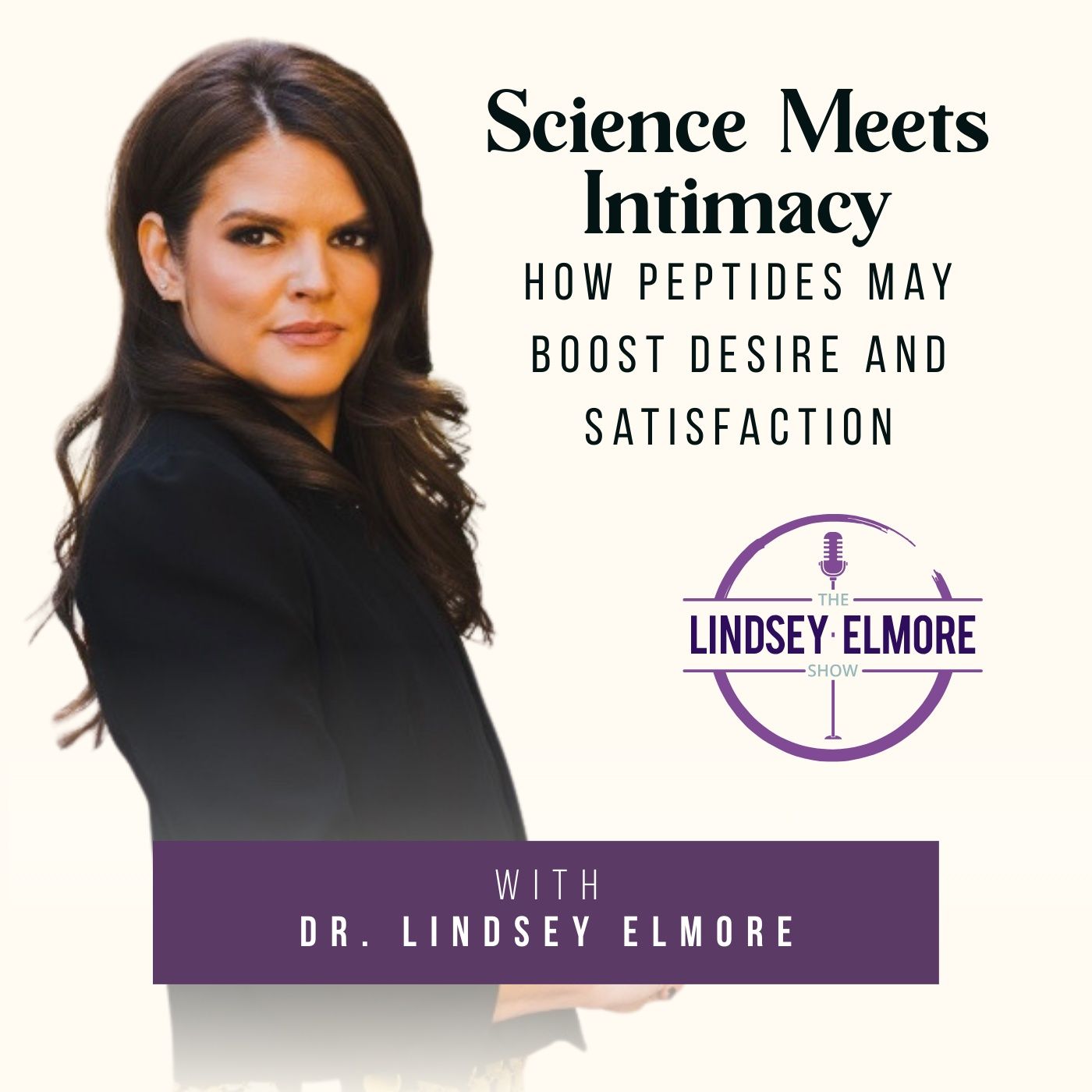
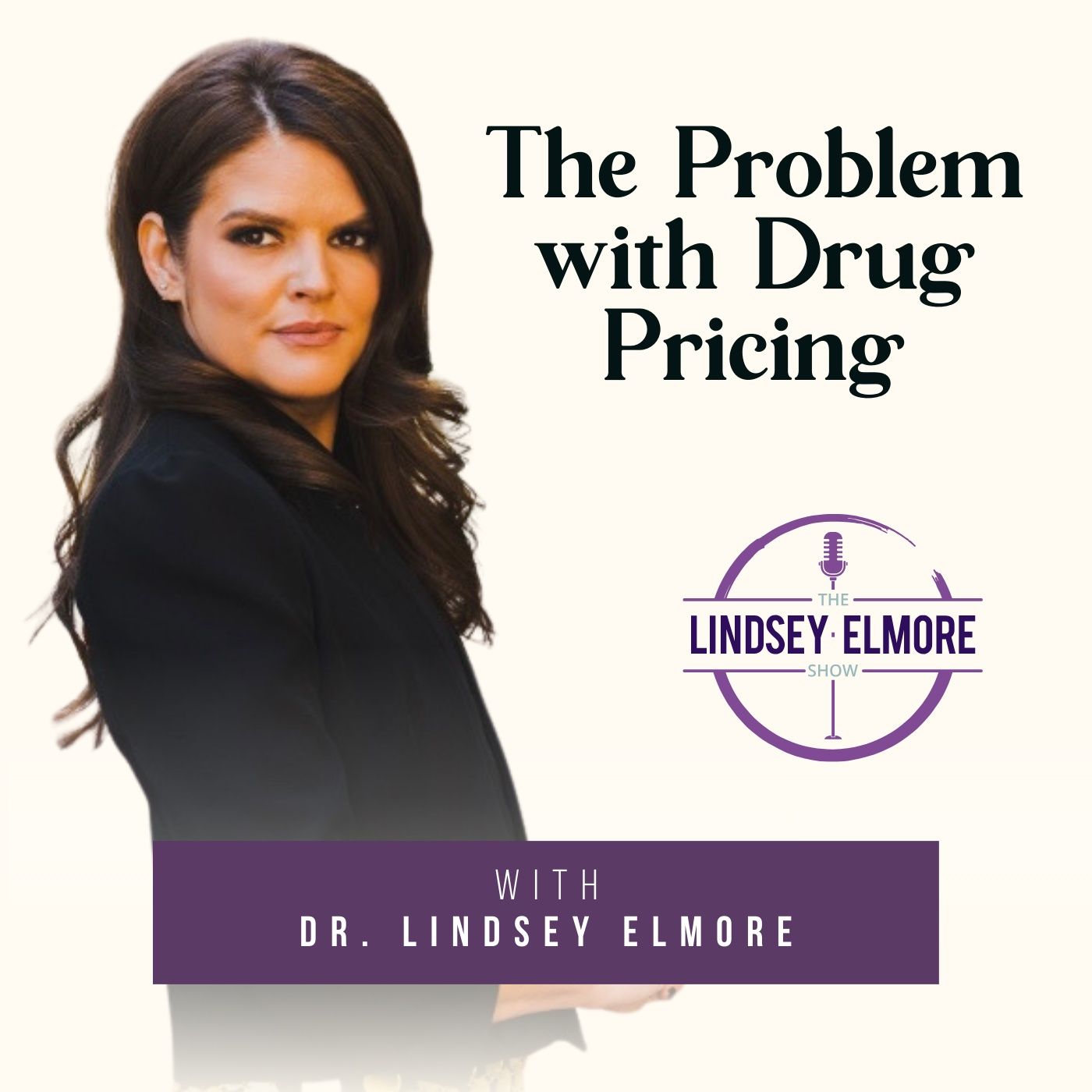
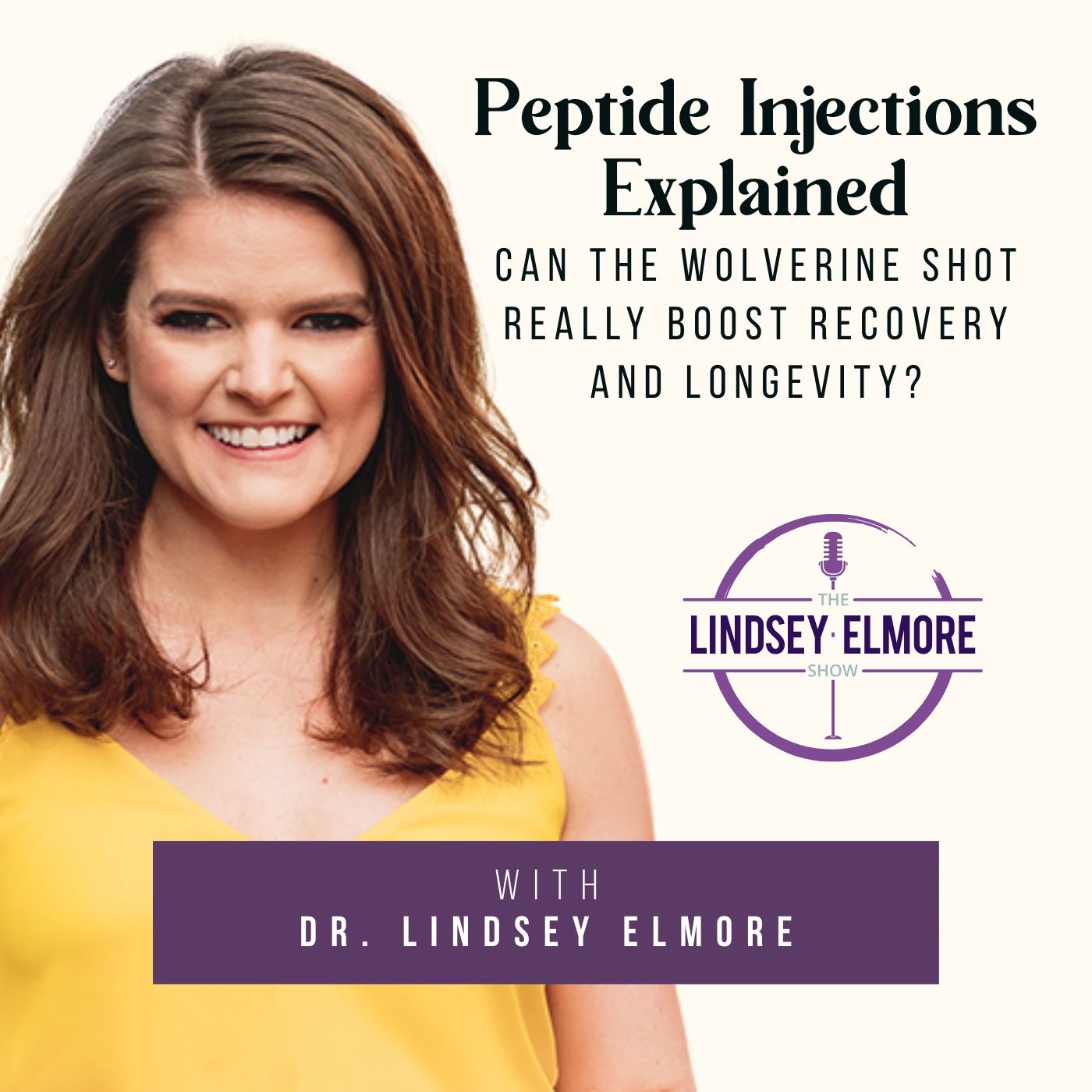
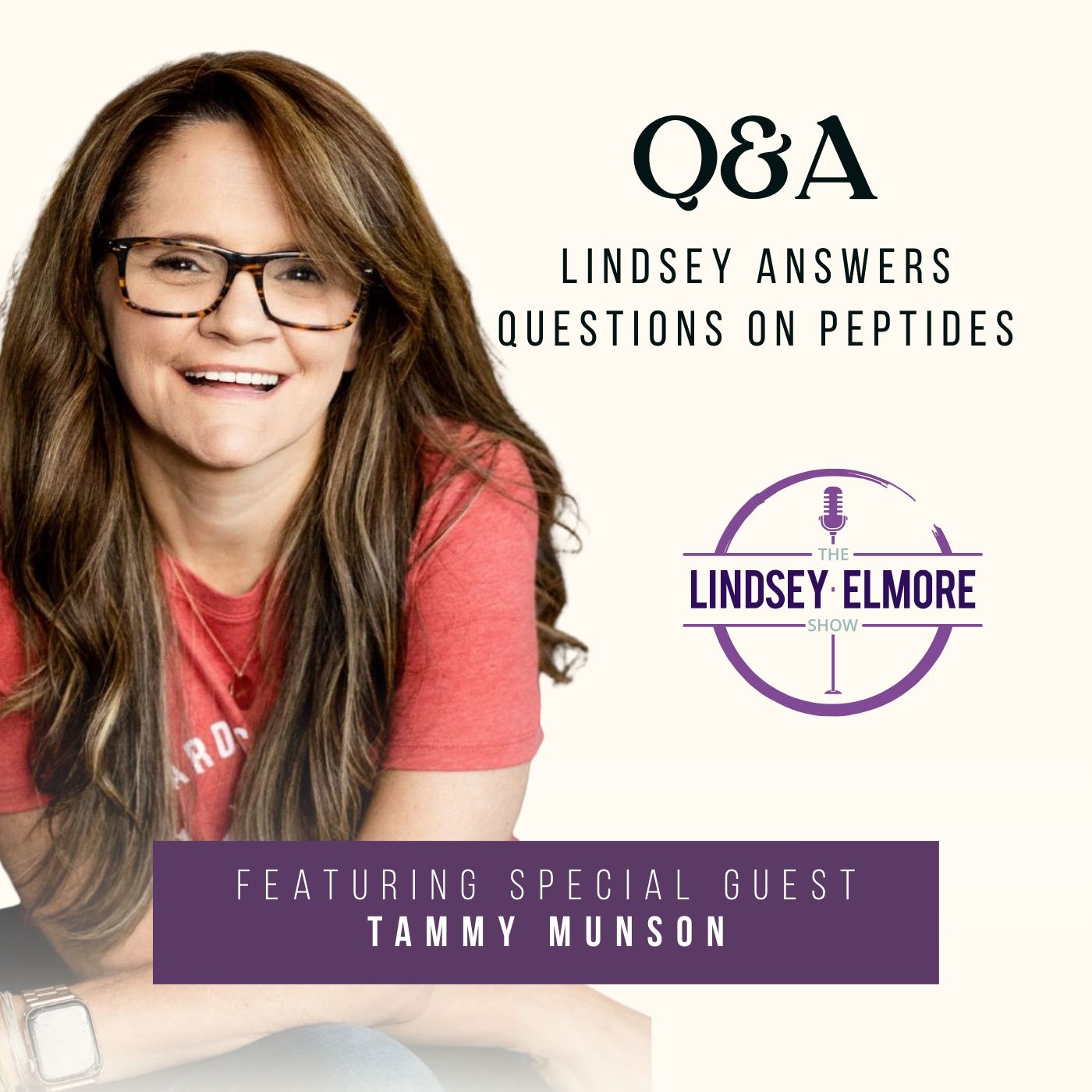
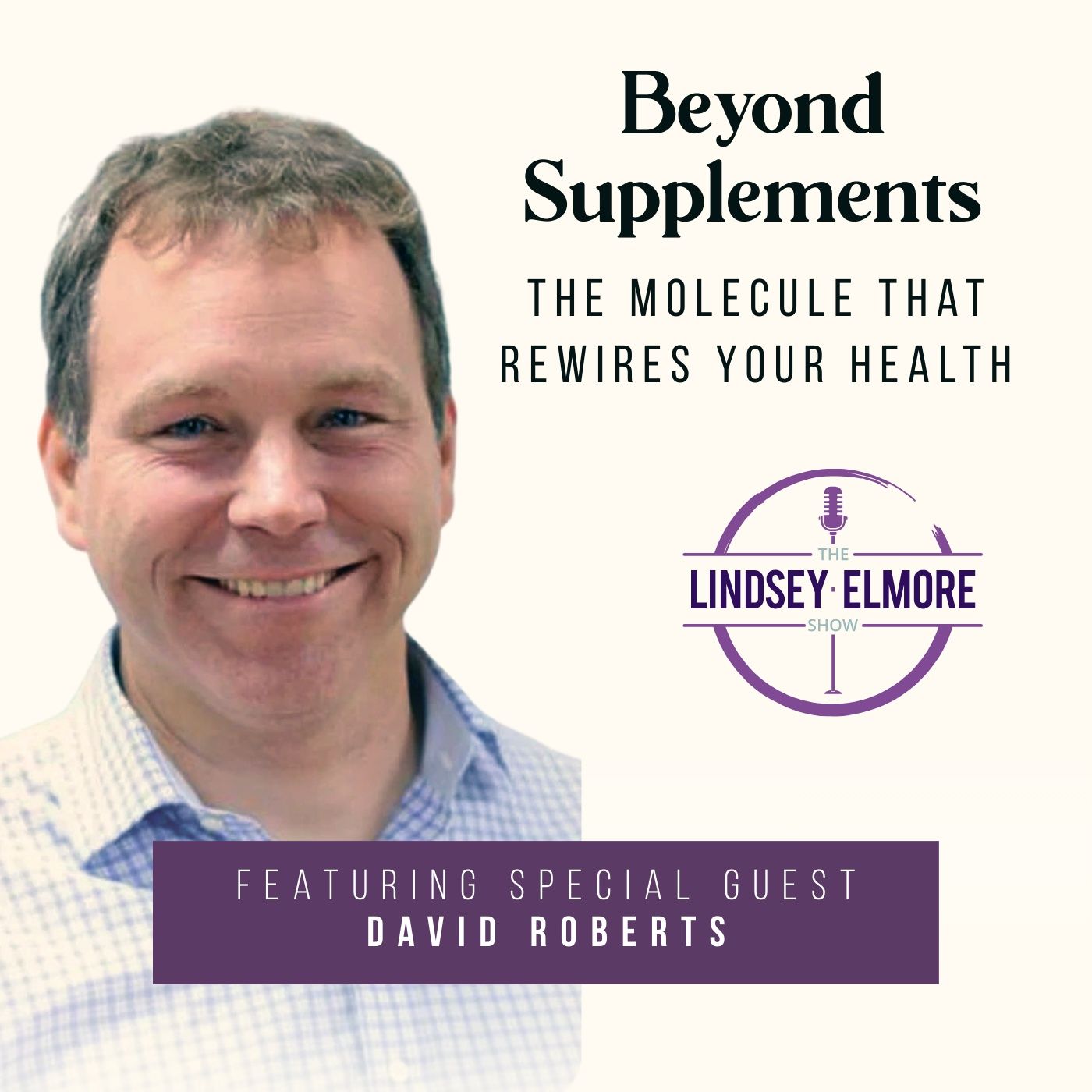
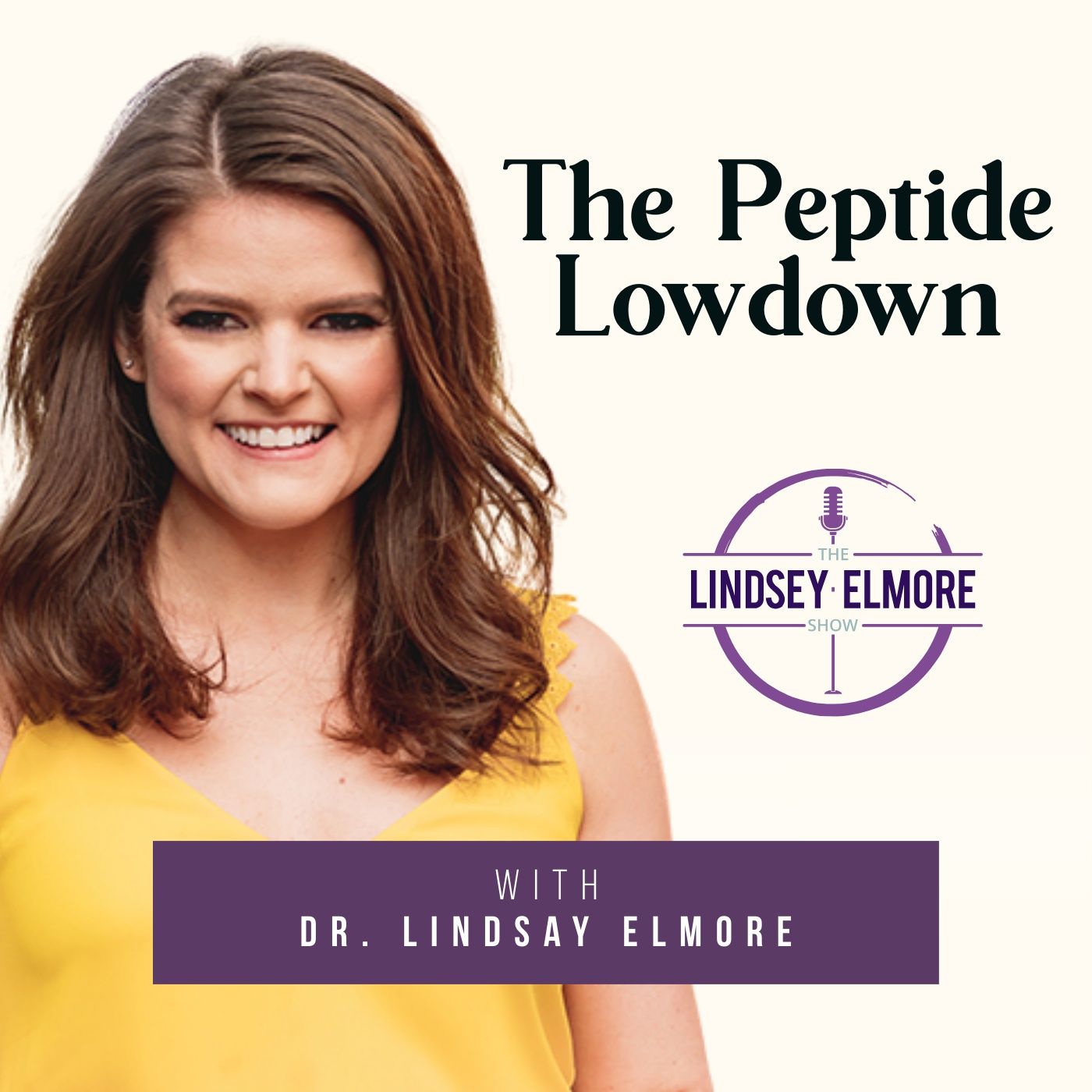
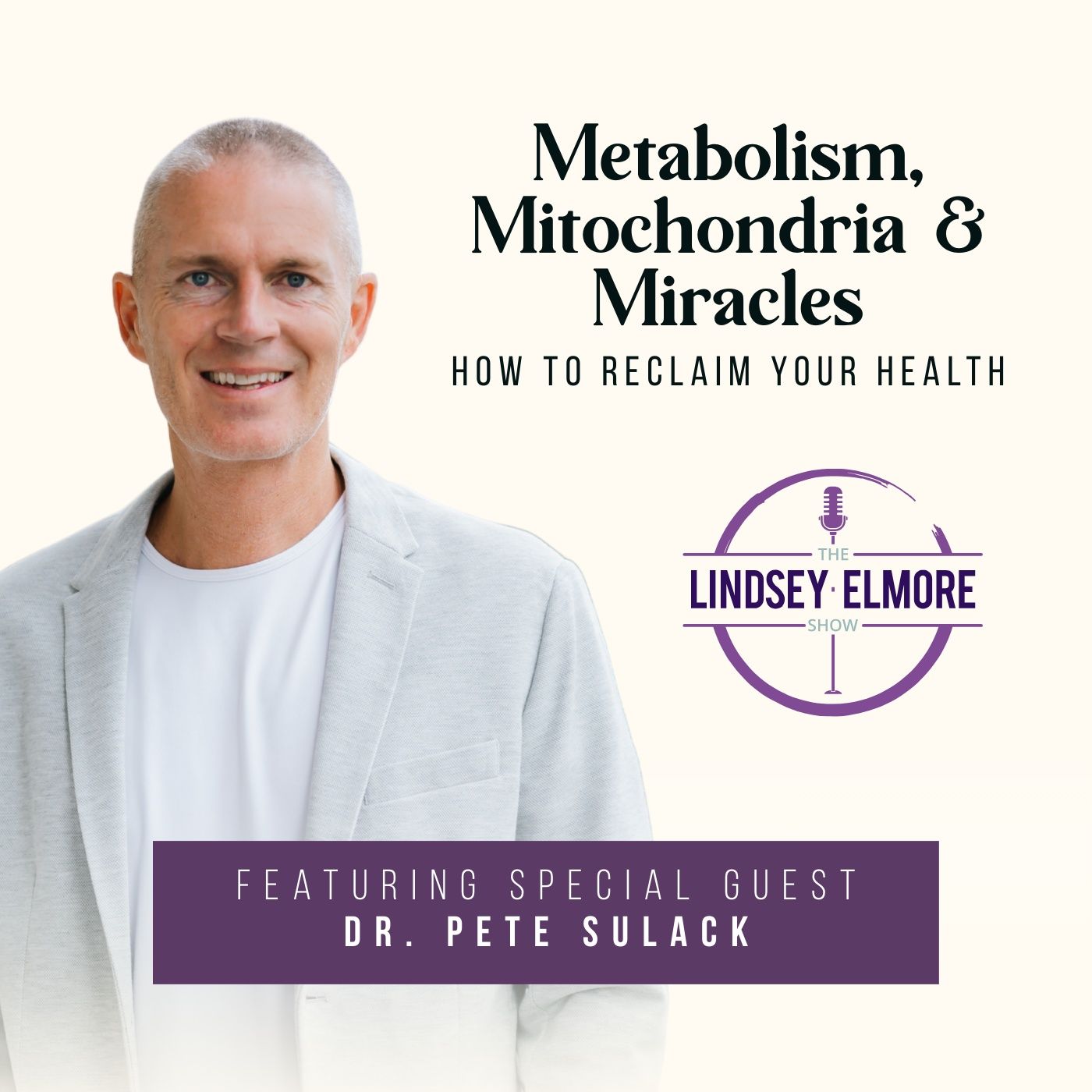
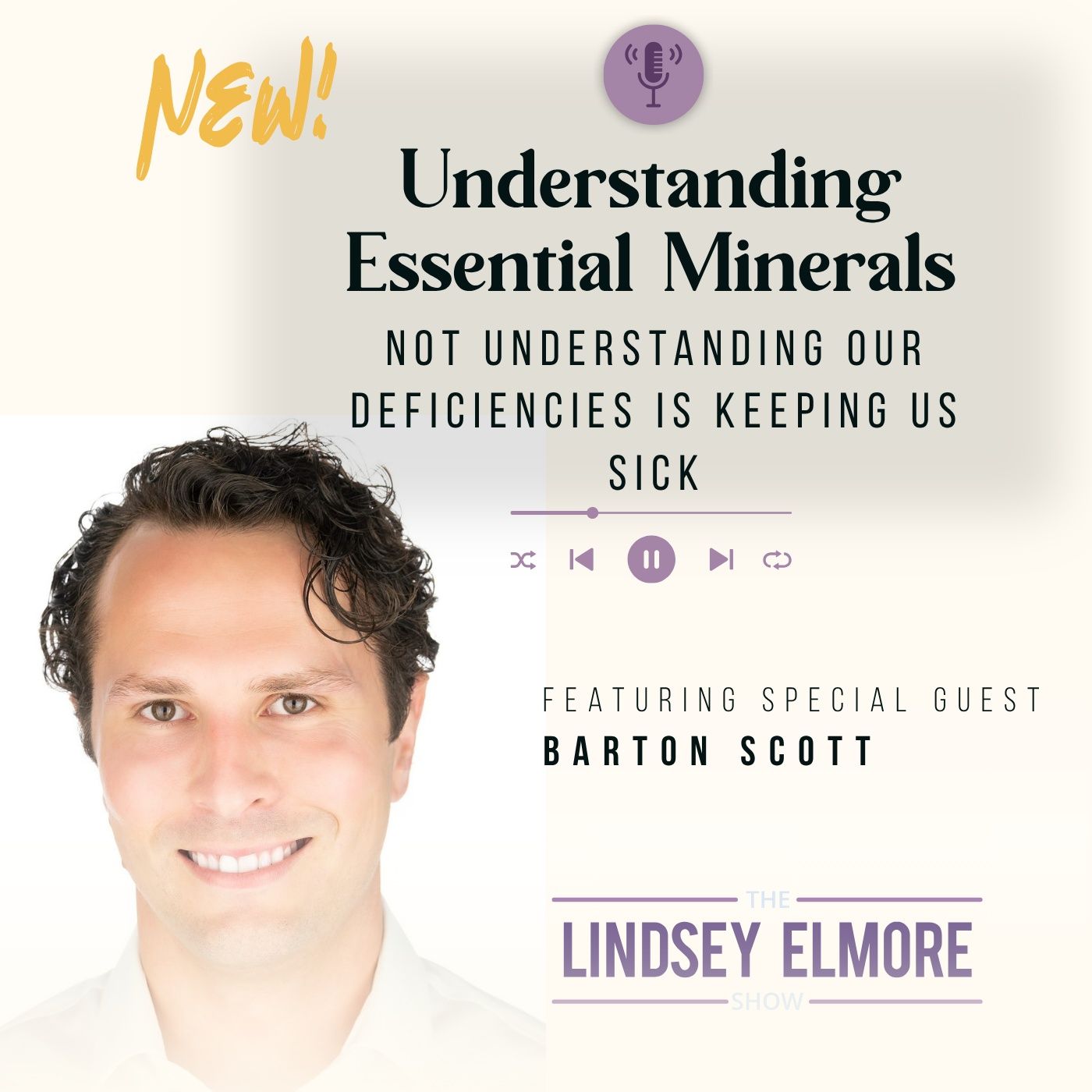
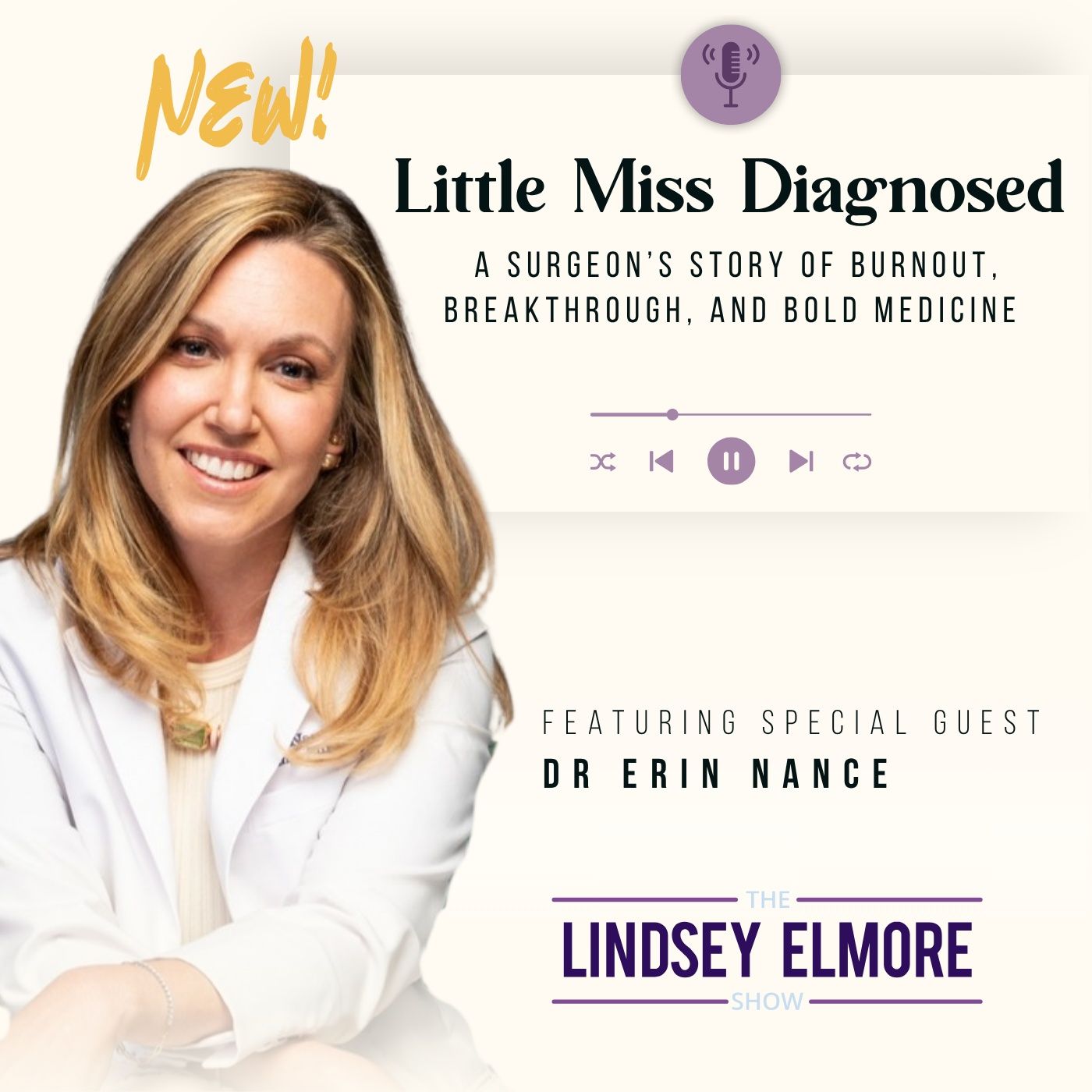

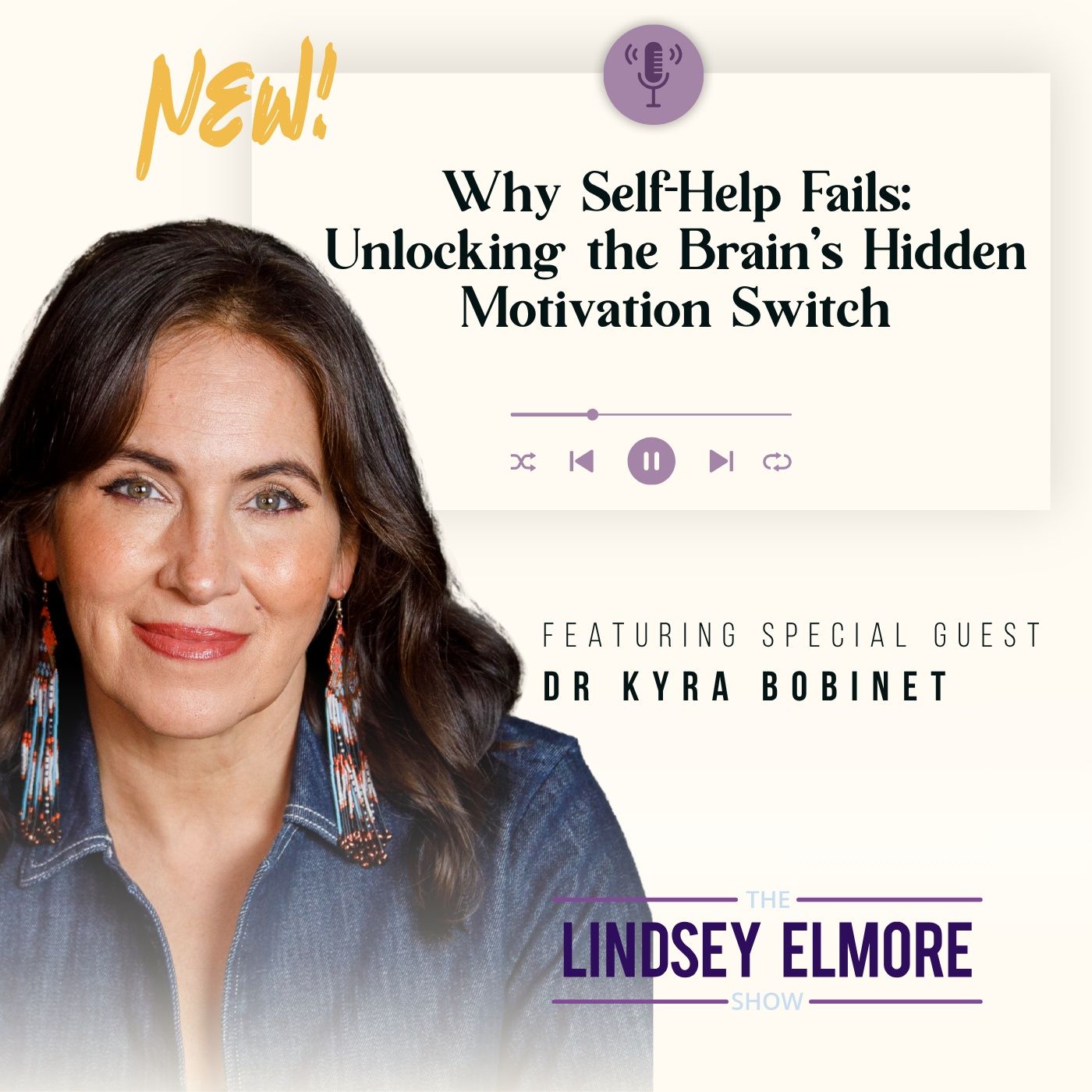
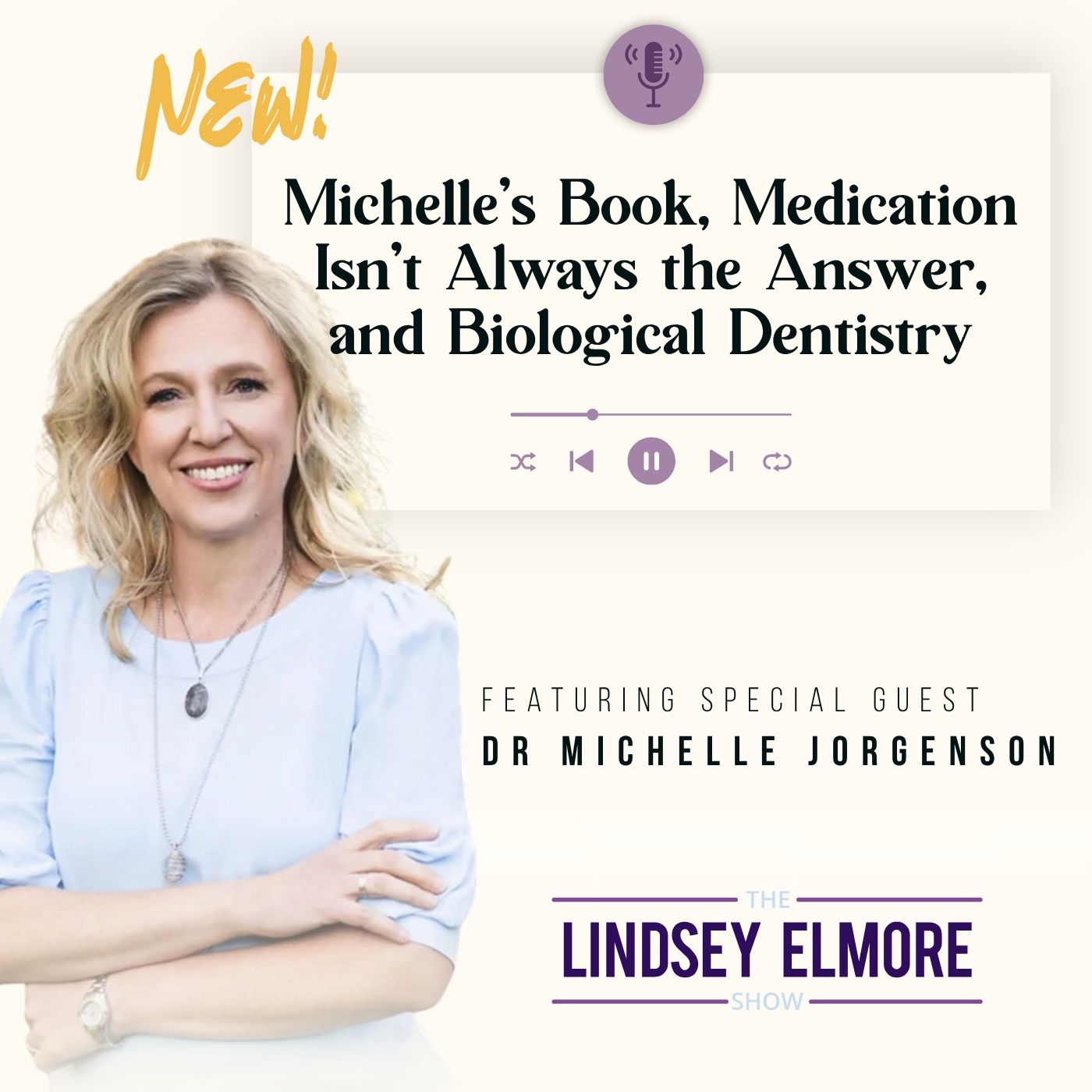

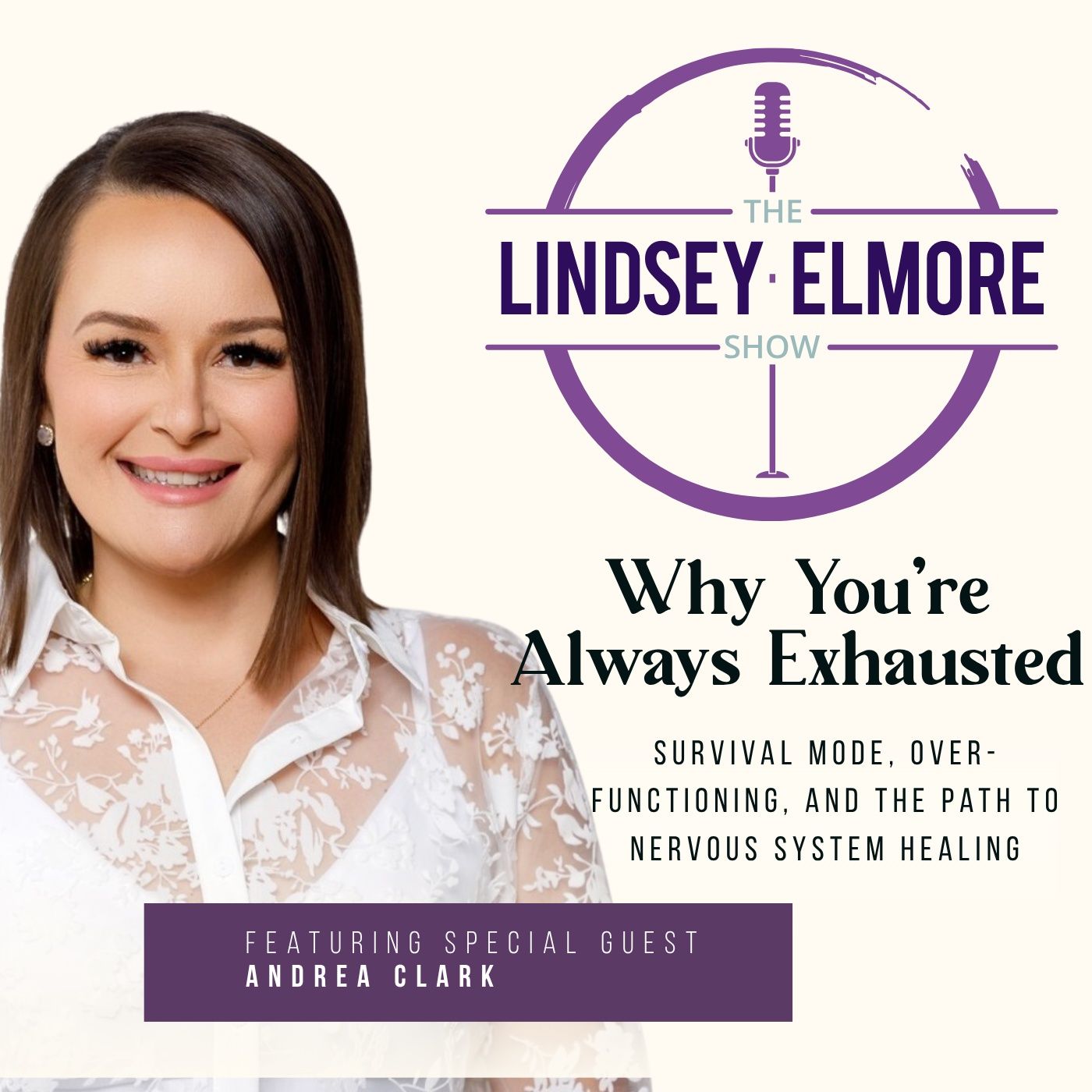
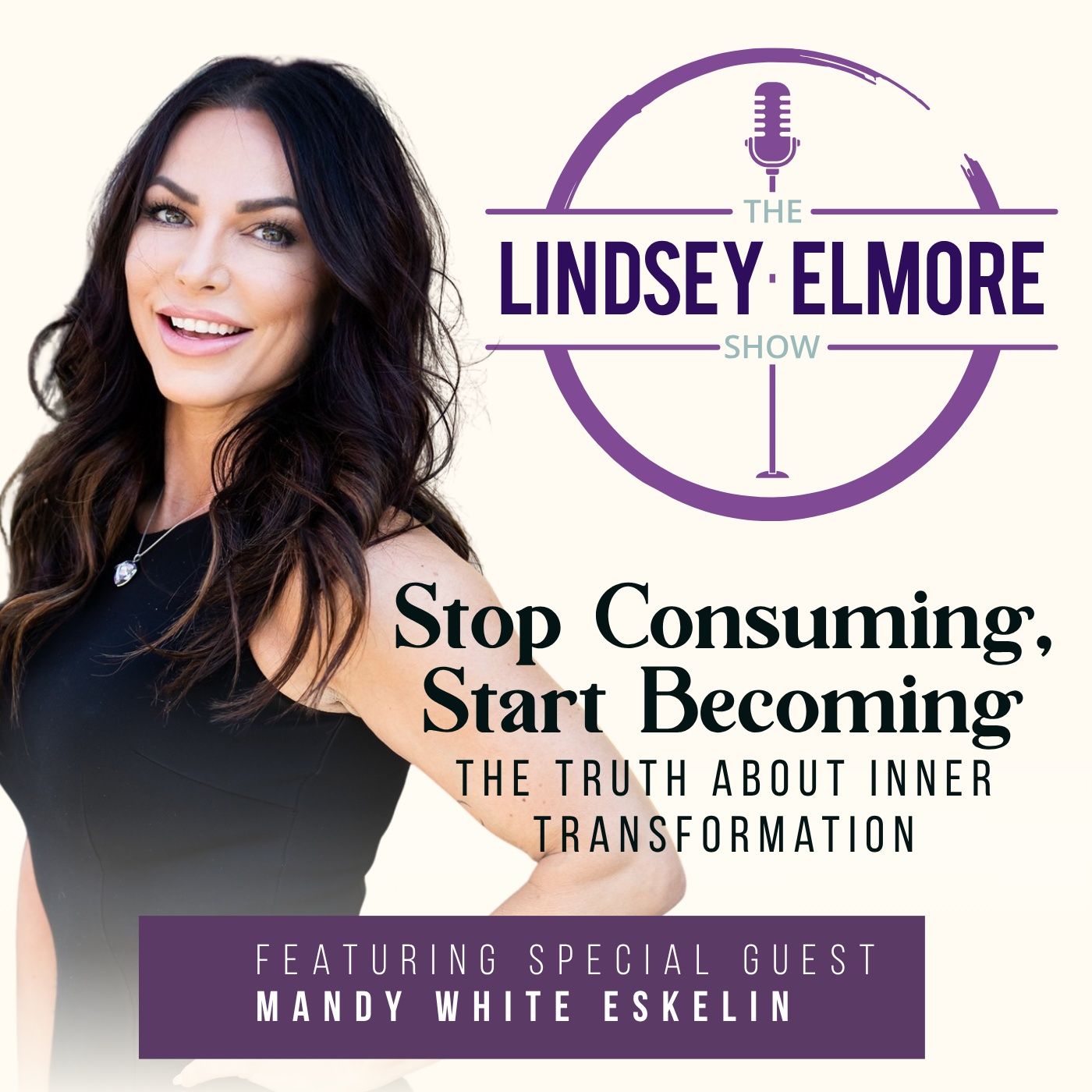
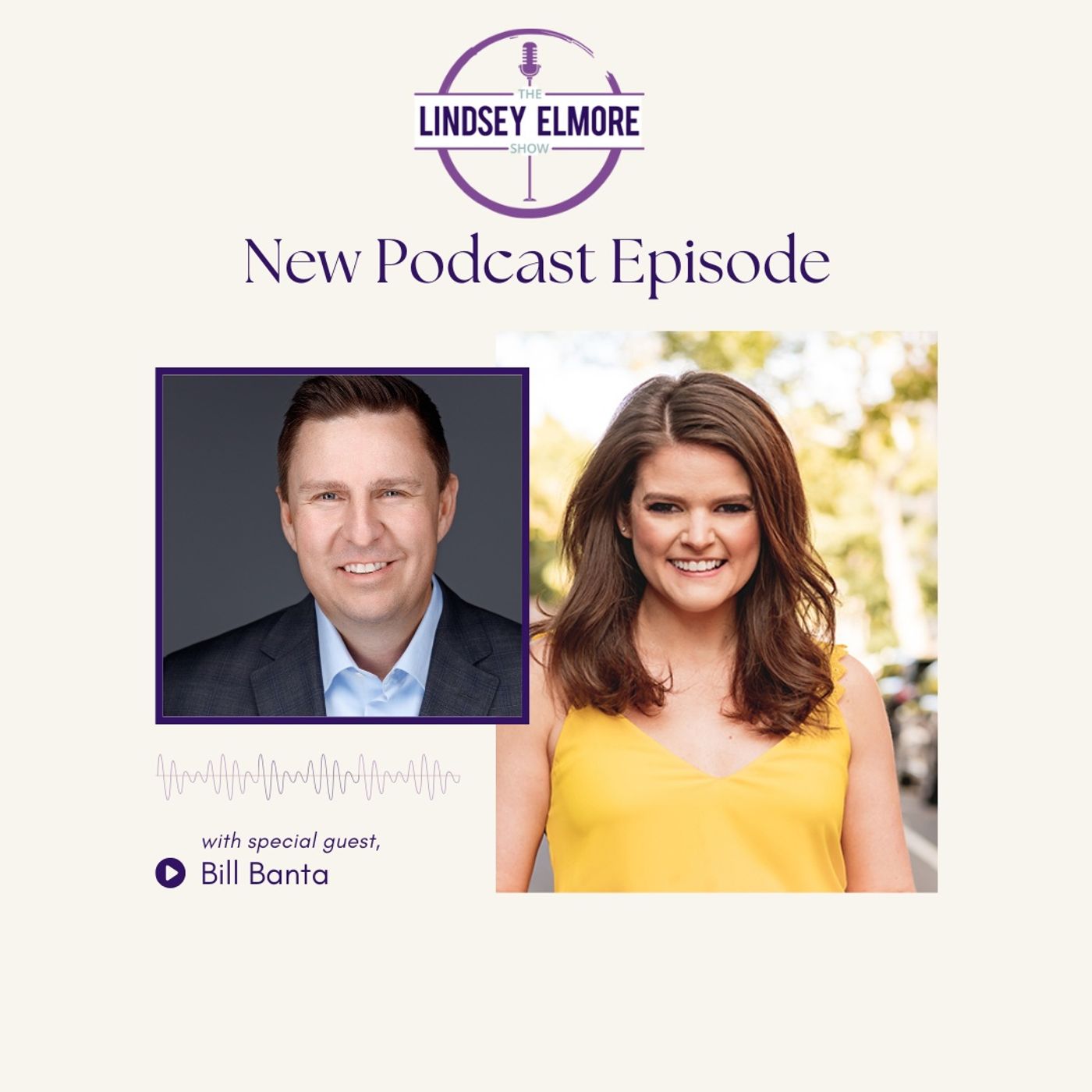
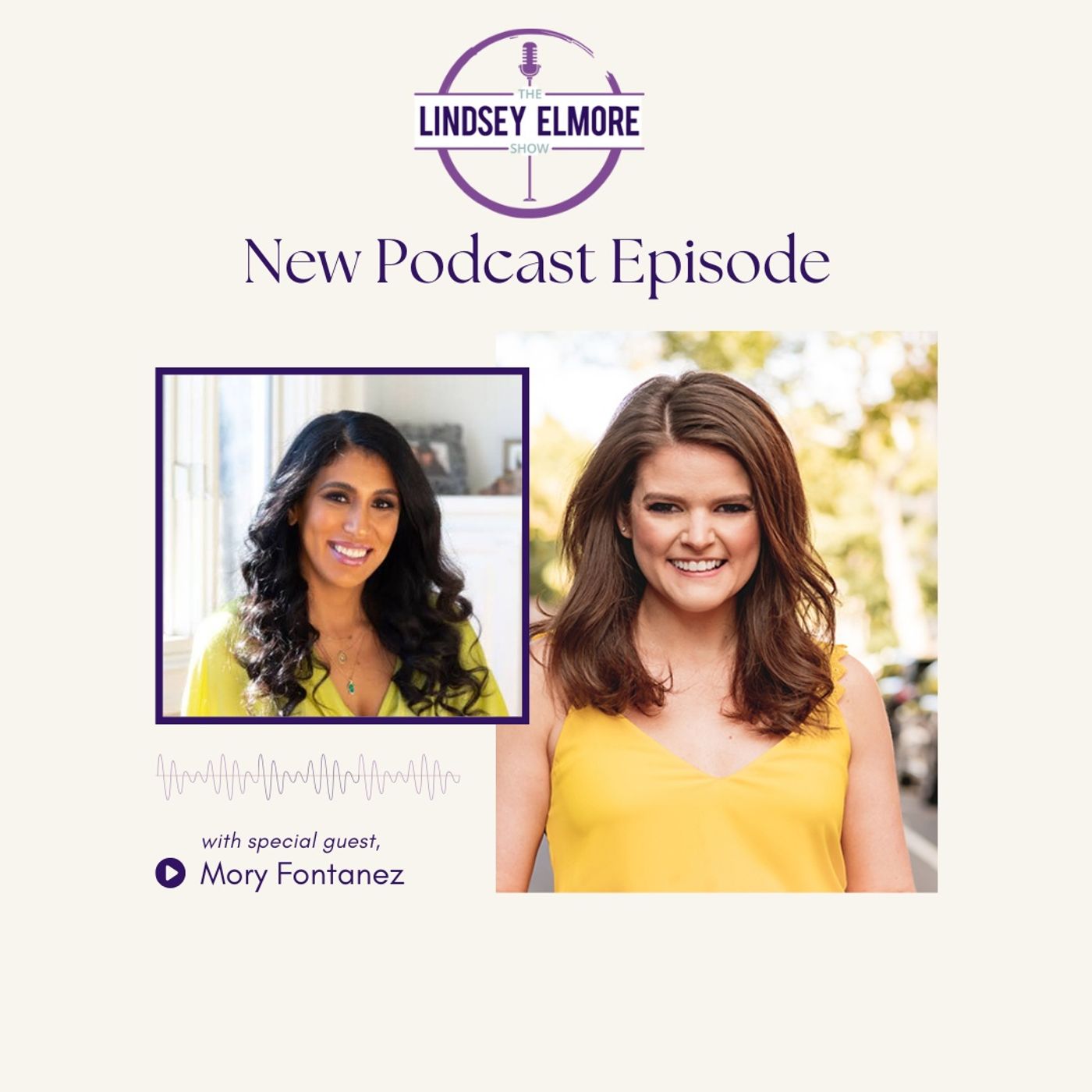




wow. this was so incredibly moving. I'm not crying.
this was a great episode! i love chiropractic care!
loved this so much!